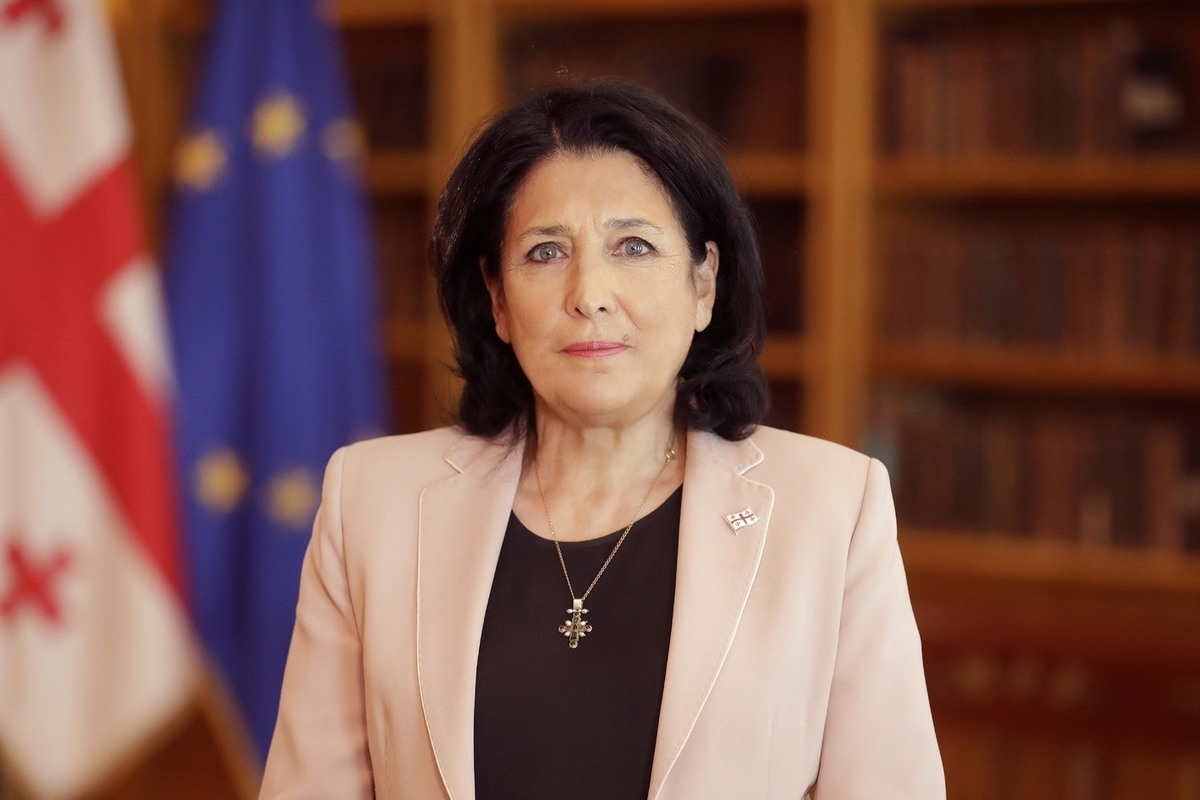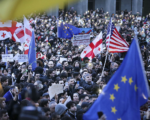Georgian President Calls for Protests Against Disputed Election Victory of Ruling Party

In a move that could heighten political tensions, Georgian President Salome Zourabichvili called on citizens to protest the outcome of Saturday’s parliamentary elections, which officially granted a narrow win to the ruling Georgian Dream party. According to the electoral commission, Georgian Dream received nearly 54% of the vote, securing a fourth term with 89 parliamentary seats, despite claims from opposition parties and international observers of irregularities and potential fraud.
Zourabichvili, previously aligned with Georgian Dream but now a vocal critic, condemned the results, calling the election process a “Russian special operation” and asserting that the vote had been compromised, though she did not confirm direct Russian involvement. “It was a total fraud, a total taking away of your votes,” she stated to reporters. She urged Georgians to assemble in Tbilisi’s city center on Monday to publicly denounce the election and demand a fair investigation.
Despite widespread criticism, Prime Minister Irakli Kobakhidze defended the election’s integrity, arguing that international monitors’ statements did not challenge the legitimacy of the result. However, observers from the Organization for Security and Cooperation in Europe (OSCE) and other monitoring bodies reported issues such as ballot-stuffing, voter intimidation, and bribery, factors they noted could have impacted the outcome. European leaders, including European Council President Charles Michel, called for a thorough investigation into the alleged violations, emphasizing Georgia’s need to demonstrate its commitment to EU values if it hopes to progress on its stalled EU membership application.
Opposition leaders reacted strongly to the results, with many pledging to boycott parliament and calling on their supporters to protest. Nika Gvaramia, leader of the Coalition for Change, labeled the election a “constitutional coup” and accused Georgian Dream of orchestrating a “usurpation of power.” Tina Bokuchava of the United National Movement also condemned the outcome, accusing Georgian Dream of “stealing” the election. Polls taken at exit points reportedly showed the opposition leading, intensifying skepticism over the official results.
Bidzina Ivanishvili, the billionaire founder of Georgian Dream and its reclusive former leader, celebrated the party’s victory, stating that Georgian Dream’s policies had been vindicated by voters. His party campaigned on a platform of neutrality in the ongoing Ukraine conflict, a stance that has drawn both support and criticism. Although Georgian Dream officially supports EU membership, it has pursued policies, including a “foreign agents” law and limitations on LGBTQ+ rights, that have strained its relationship with the EU.
The Georgian election comes at a time of increased tension in the region, with Russia actively seeking to expand its influence in former Soviet territories. Some EU leaders have voiced concern about Georgia’s trajectory, questioning its commitment to democratic principles. In neighboring Moldova, for example, recent pro-EU election results were reportedly marred by Russian interference, underscoring the region’s volatility.
Hungarian Prime Minister Viktor Orbán, a long-time ally of Ivanishvili and an EU leader with close ties to Georgia, is expected to visit Tbilisi on Monday, underscoring the international significance of Georgia’s current political landscape. For Georgia, the election results could have far-reaching implications, especially as the country remains divided between pursuing closer EU ties or strengthening relations with Russia.














